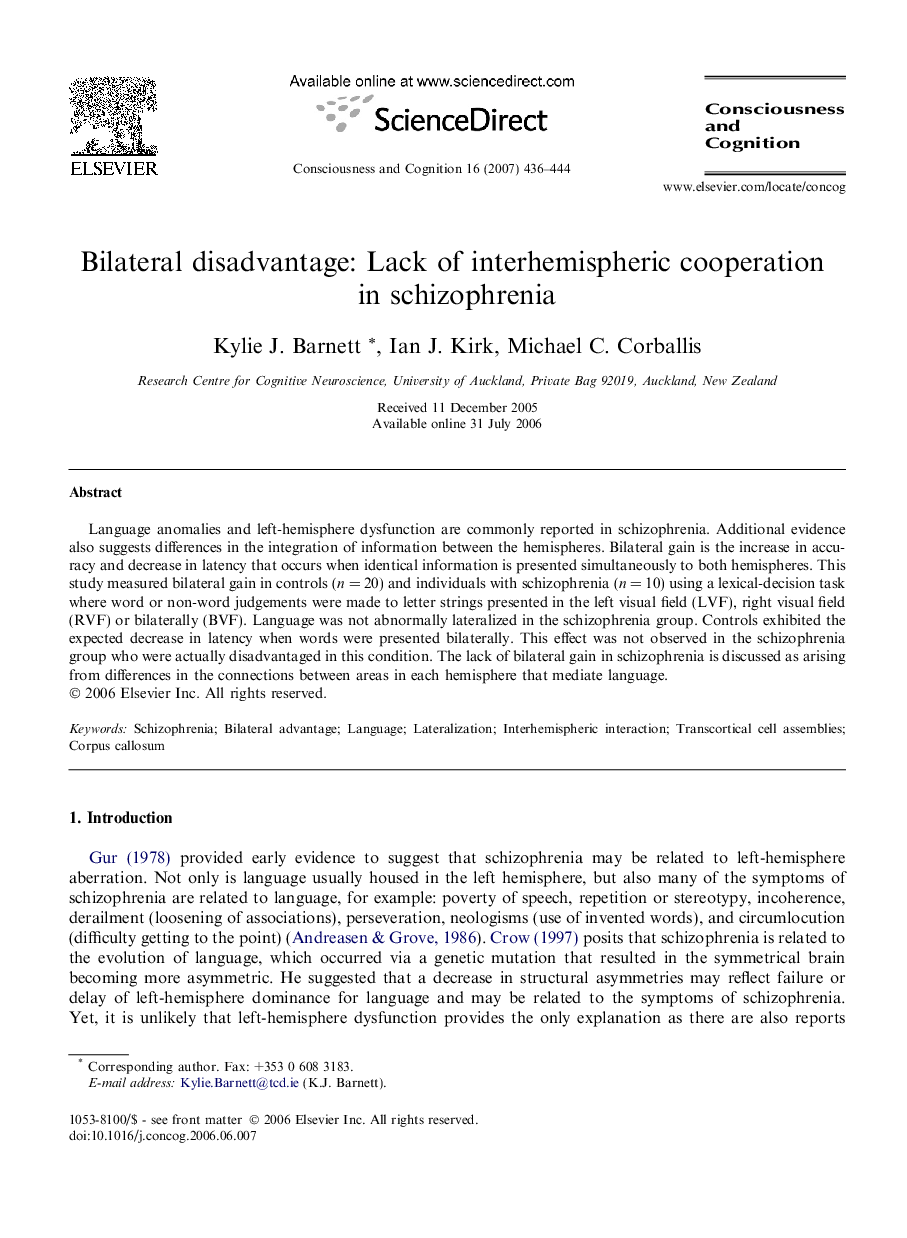| Article ID | Journal | Published Year | Pages | File Type |
|---|---|---|---|---|
| 928133 | Consciousness and Cognition | 2007 | 9 Pages |
Language anomalies and left-hemisphere dysfunction are commonly reported in schizophrenia. Additional evidence also suggests differences in the integration of information between the hemispheres. Bilateral gain is the increase in accuracy and decrease in latency that occurs when identical information is presented simultaneously to both hemispheres. This study measured bilateral gain in controls (n = 20) and individuals with schizophrenia (n = 10) using a lexical-decision task where word or non-word judgements were made to letter strings presented in the left visual field (LVF), right visual field (RVF) or bilaterally (BVF). Language was not abnormally lateralized in the schizophrenia group. Controls exhibited the expected decrease in latency when words were presented bilaterally. This effect was not observed in the schizophrenia group who were actually disadvantaged in this condition. The lack of bilateral gain in schizophrenia is discussed as arising from differences in the connections between areas in each hemisphere that mediate language.
